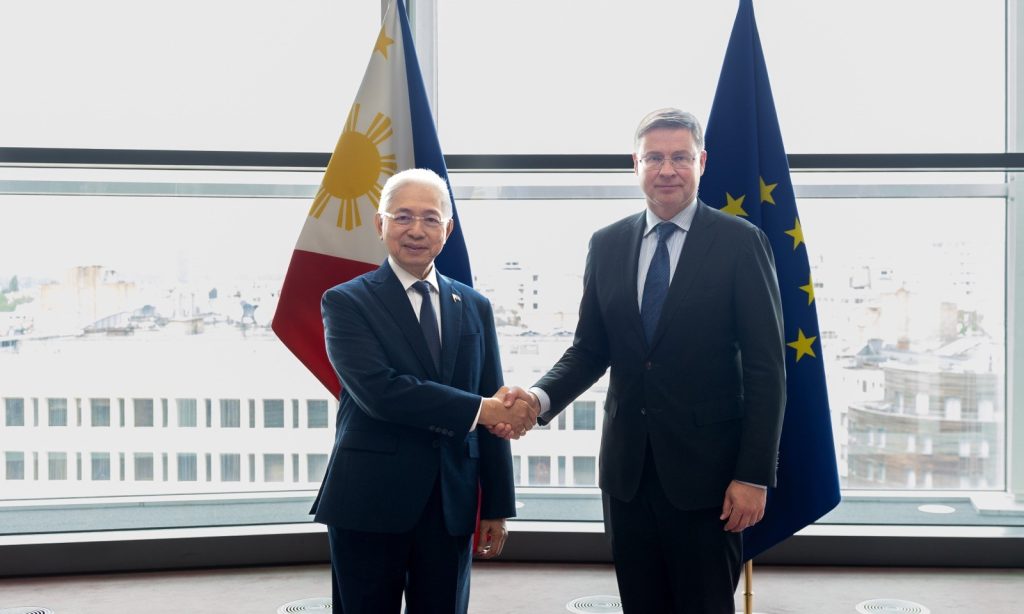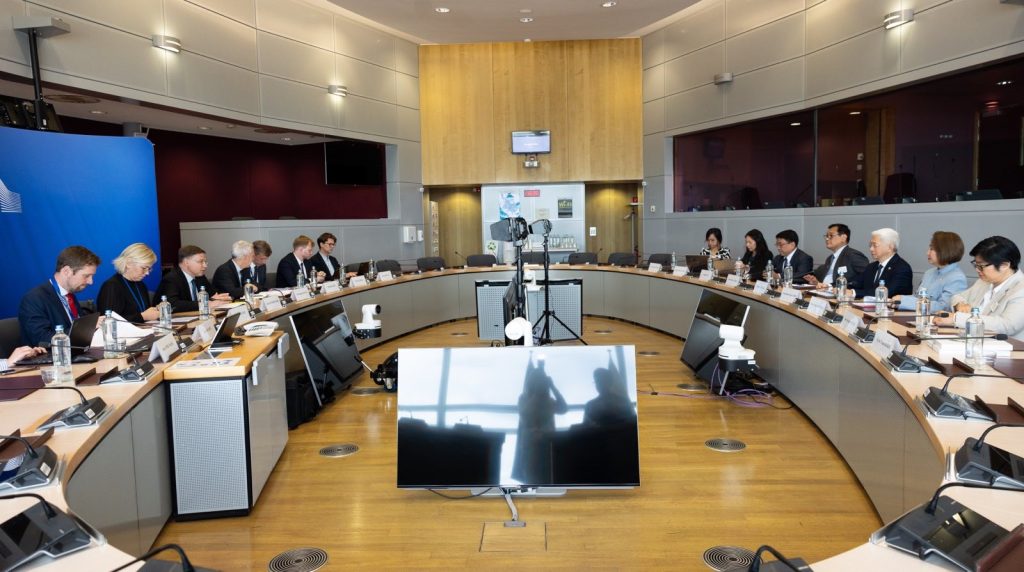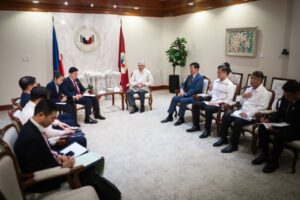
Philippines Department of Trade and Industry (DTI) Secretary Alfredo Pascual and European Commission Vice President/Trade Commissioner Valdis Dombrovskis met on June 26, 2023 in Brussels, Belgium to sustain high-level exchanges between the Philippines and the European Union.
To show the current administration’s resolve to work closely with the EU, Secretary Pascual highlighted the recent policy directions undertaken by the Philippines to create an enabling business environment for foreign investments.
He gave an update on the country’s participation in the Regional Comprehensive Economic Partnership (RCEP) agreement, the export strategy of the Philippines, the institutionalization of the Philippine Open Government Partnership, as well as developments in the areas of environment and good governance.
Secretary Pascual also cited the importance of the EU Generalized Scheme of Preferences-Plus (GSP+) to stakeholders, and how the continuation of it is beneficial both for the Philippines and the EU in driving inclusive growth and sustainable development.
For the year 2022, EUR 2.93 billion worth of PH products were exported to the EU using GSP+ rates, which yielded a utilization rate of 77% — the highest utilization rate PH logged.
Secretary Pascual underscored the necessity of finalizing the GSP regulation to provide business certainty both for Filipino exporters and EU Importers. For his part, EVP Dombrovskis reported EU’s deliberation on the finalization of the new GSP scheme regulation is ongoing.
To provide for a more permanent mechanism in PH’s economic relationship with the EU, Secretary Pascual emphasized the need to resume the PH-EU FTA negotiations, citing the demand of the business sector such as the EU-ASEAN Business Council (ABC), European Chamber of Commerce of the Philippines (ECCP), the German-Philippine Chamber of Commerce and Industry (GPCCI) and other industry associations.
“To maintain strong economic relations with the EU, it is important that a PH-EU FTA is in place before the Philippines eventually loses its GSP+ status due to continued economic growth. With the country’s positive trajectory towards reaching upper-middle income status, it is high time for the Philippines and the EU to resume FTA negotiations,” Secretary Pascual said.
“The PH-EU FTA would be a strategic platform for economic engagement for the EU in the Indo-Pacific and PH can well serve as its strategic trade partner,” he added.
DTI Secretary Pascual also highlighted the Philippines’ implementation of the Regional Comprehensive Economic Partnership (RCEP), participation in the Indo-Pacific Economic Framework (IPEF), and the upcoming signing of a bilateral FTA with Korea. The Philippines is set to pursue a preferential trade agreement with India and another comprehensive FTA with the United Arab Emirates. Through ASEAN, the Philippines is negotiating an FTA with Canada.

For the last five years, the EU had been the country’s 4th to 5th largest trading partner. In 2022, the EU was the Philippines’ 5th largest trading partner valued at EUR15.231 billion in total trade (7.63% share to PH total trade); 6th export market with EUR7.96 billion, and 6th import supplier valued at EUR7.14 billion. The EU represents around 8-11% of the Philippine export and about 24-28% of the country’s total exports to the EU are using GSP+ rates. From about EUR5.3 billion Philippine exports to the EU in 2014 is now EUR10.4 billion as of 2022.
Similarly, the EU has been one of the largest foreign investment partners of the Philippines with total investments amounting to around EUR836 million in 2021 and 2022. Most of these investments were recorded in manufacturing, information and communication, real estate, and administrative sectors.


